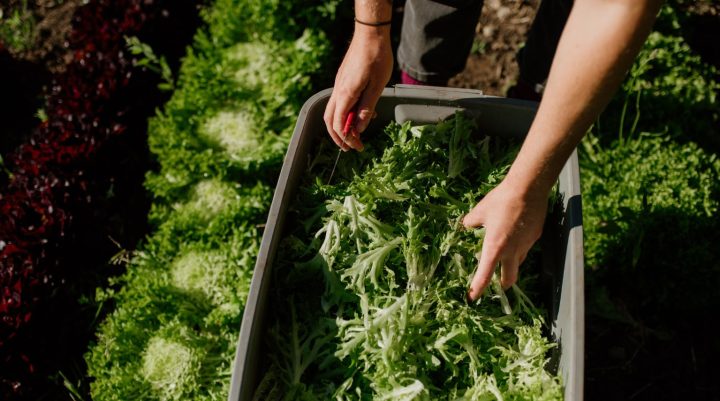
The Agroecological Transitions for Climate Resilience in British Columbia (BC) research project is working to support BC farmers and the BC farming industry to improve resilience to the impacts of climate change and extreme weather.
Climate resilience in farming involves not only producing food for the province, but also protecting farmer livelihoods, social well-being, and food security. By evaluating farm diversification and perennialization as climate resilience and climate change mitigation strategies over 3+ years, this project is working in real-time to address challenges that farmers are facing.
This University of British Columbia-led initiative is working with BC farmers, farming organizations (including Organic BC and BC ACARN), and local government to develop farm-level and industry-level solutions to support farmers. This work will recommend actions for the farming industry and government to take to support climate-resilient farming in BC.
If you would like to learn more, please read the Project Overview below! You can also read the project announcement here.
Project Purpose
Agricultural land covers 40% of the earth’s surface and the food systems it supports are responsible for one-third of humanity’s contribution to global climate change. Farmers are among the most vulnerable to climate change. Extreme weather events can cause unpredictable food prices and affect livelihoods, biodiversity, and food security at local, provincial, and national levels. The agroecological movement aims to help farmers build locally relevant, resilient, and sustainable food systems in response to climate change.
Our project builds on agricultural transitions research in farming communities in British Columbia, Germany, India and Brazil. We are studying how community networks of farming organizations, governments, and consumer groups shape the incorporation of diverse and perennial crops in agriculture. Direct impacts of diverse and perennial farming practices on climate resilience are being measured through improvements in farmer livelihoods, food security, and carbon sequestration.
Diverse perennialization brings together many species of annual and perennial crops and trees into the same farm. Compared to annual cropping systems, perennial crops show promise for climate resilience because they capture carbon and protect farms against loss of soil quality, drought, and other impacts of climate variability.
Diverse perennial farming can improve climate resilience and increase farmer wellbeing through higher and more stable farm incomes, balanced farming labour across growing seasons, improved working conditions compared to annual cropping with high inputs, and improved farmer nutrition and health.
British Columbia Case Study
By working with farming organizations and farmers across BC, we are studying the pressures that farmers experience as they make decisions about using diverse and perennial farming practices. We will study climate resilience outcomes for perennialization and diversification over 3 years and gauge the potential to expand these practices in BC. We will test specific agricultural practices (including nutrient management and crop rotation) for climate resilience potential and recommend ways that the farming industry and government can support diversified perennial farming.
This work supports the success of farming in BC by producing research at the farm level and elevating farmer voices to address increasing climate-related and economic pressures for farmers.
The Project Team
This work is led by Faculty of Land & Food Systems researchers at the University of British Columbia. UBC researchers have partnered with BC farmers, Organic BC, BC Agricultural Climate Action Research Network, and the BC Ministry of Agriculture & Food to deliver this project, with support from the New Frontiers in Research Fund.
To learn more about this project, please contact Hannah Wittman (hannah.wittman@ubc.ca, UBC), Eva-Lena Lang (ed@organicbc.org, Organic BC), or Love-Ese Chile (lechile@bcacarn.ca, BC ACARN).


